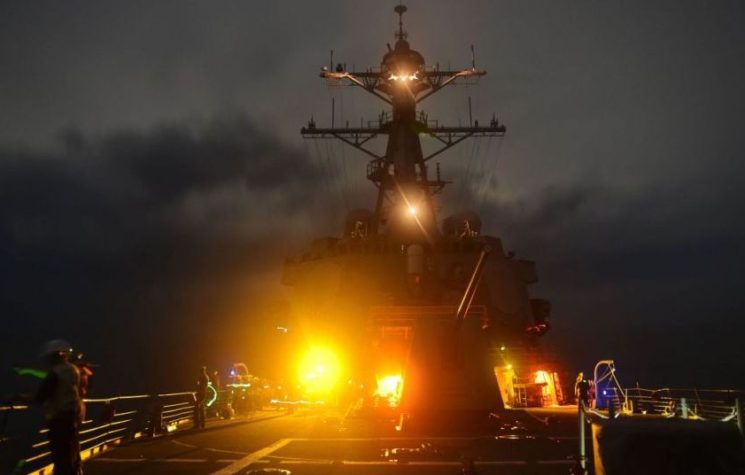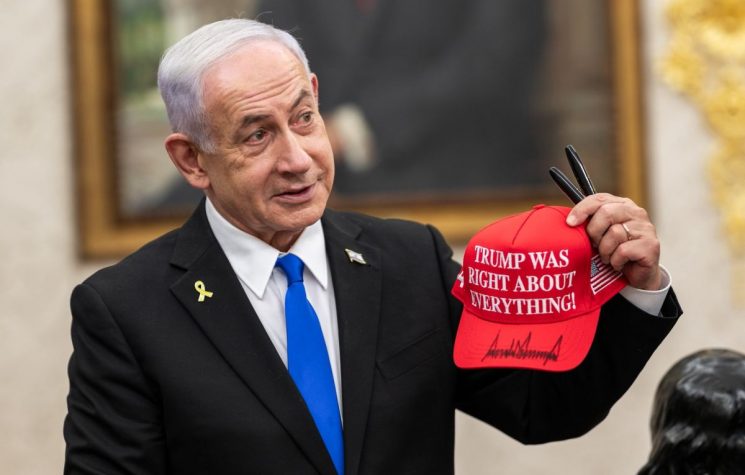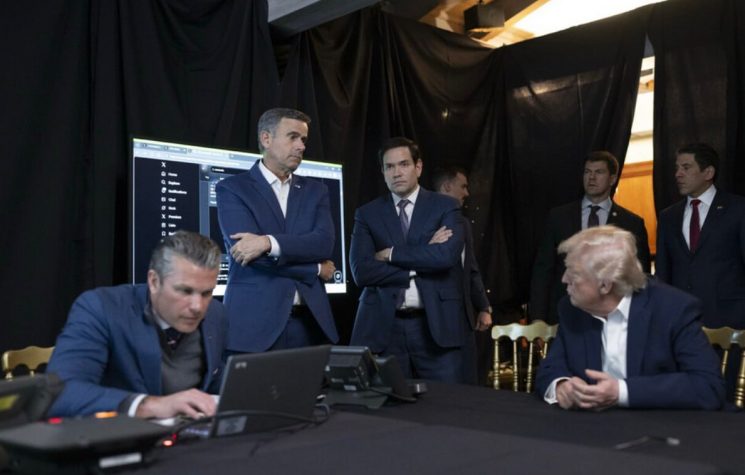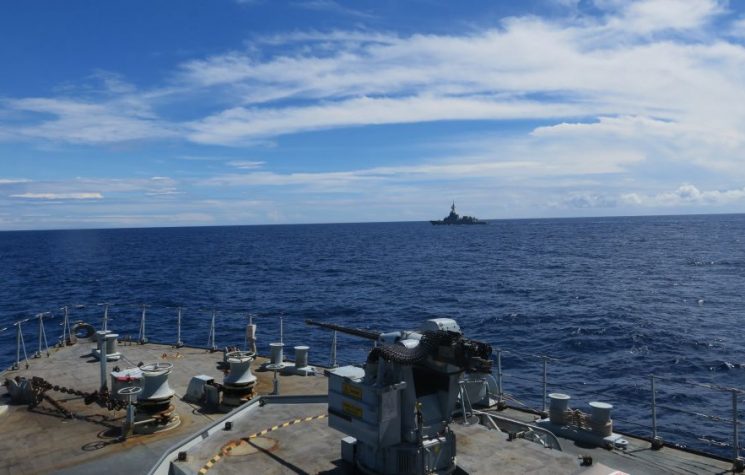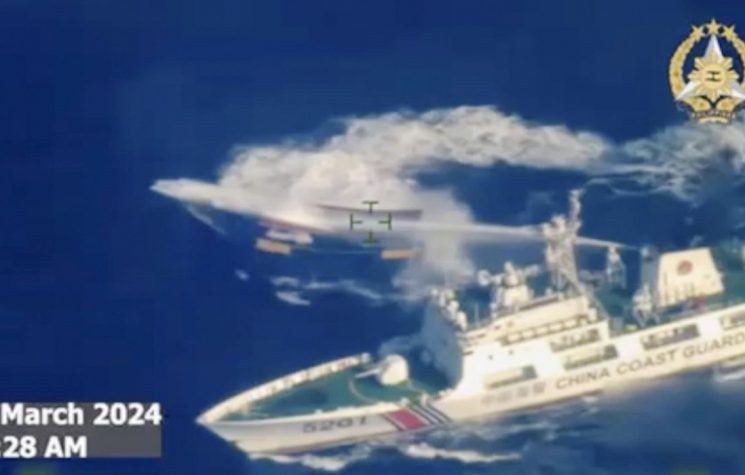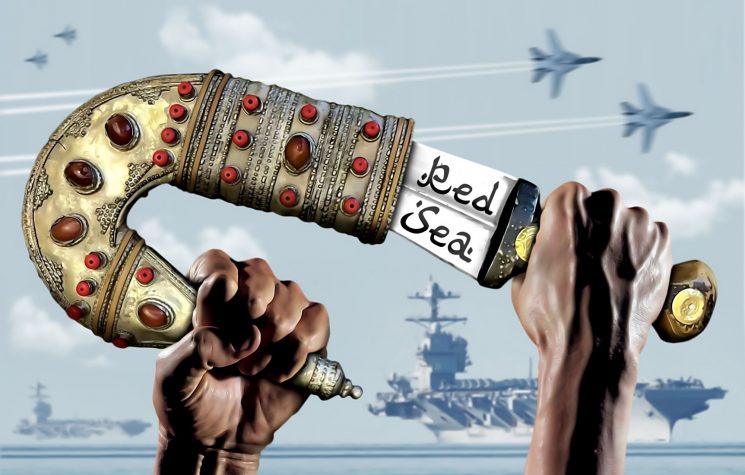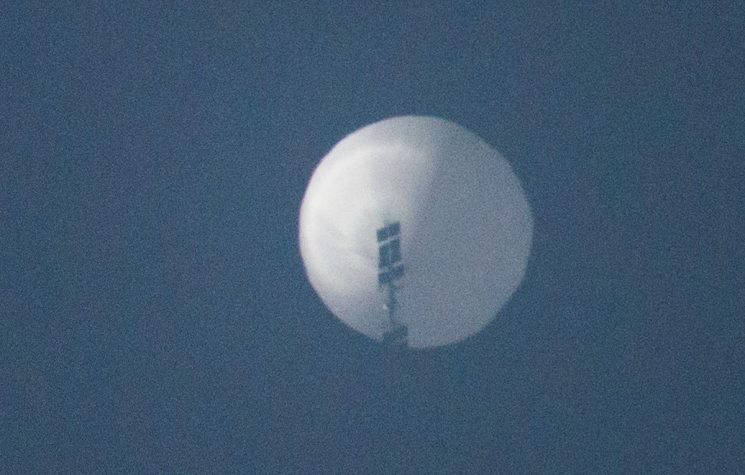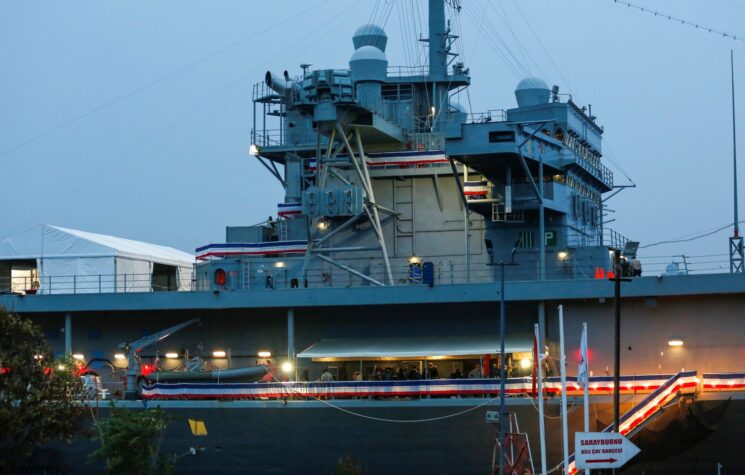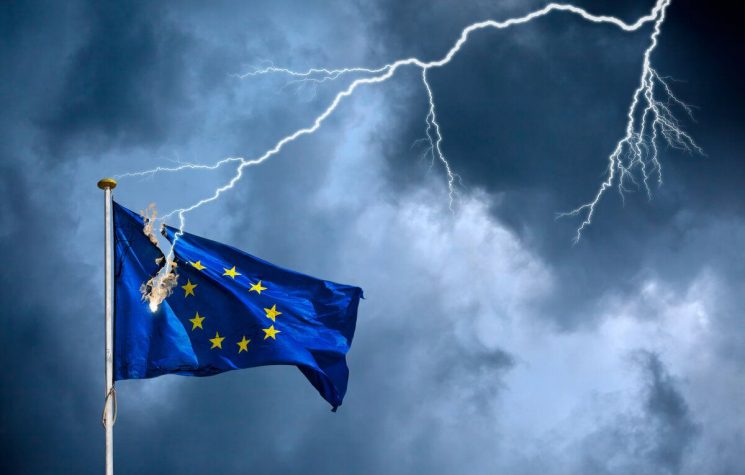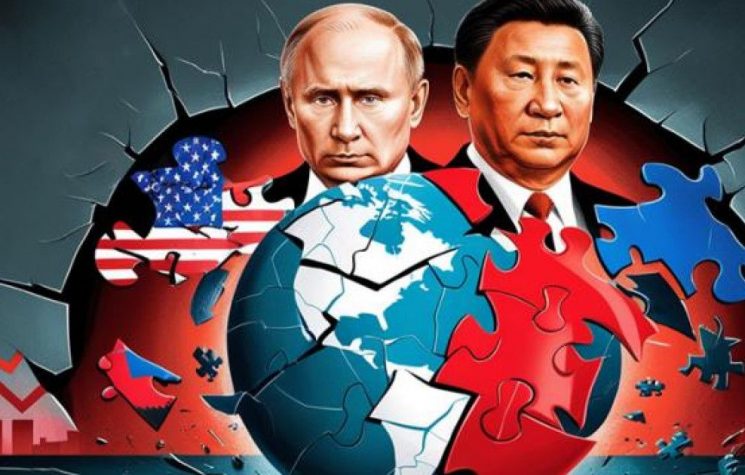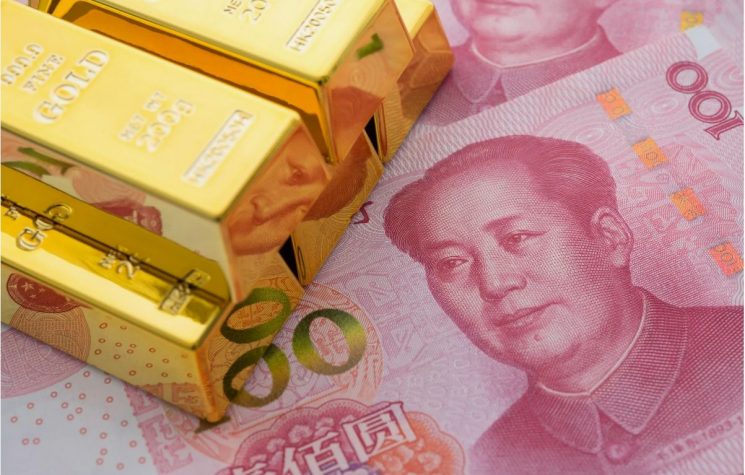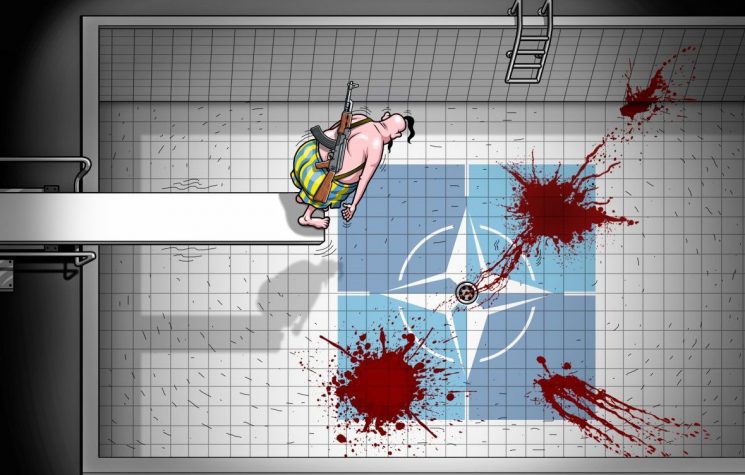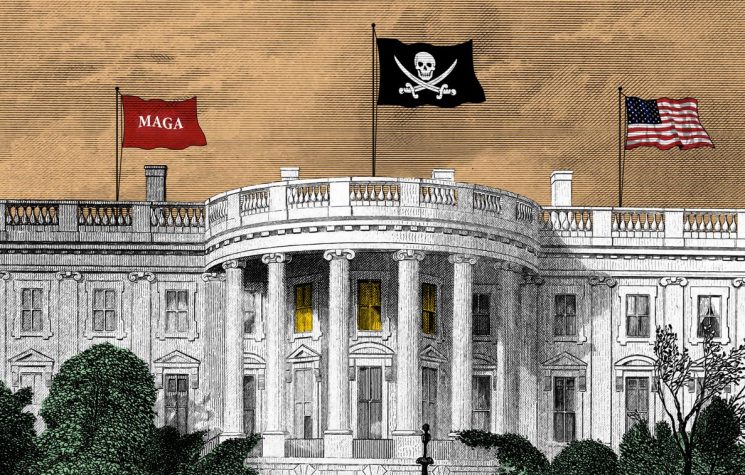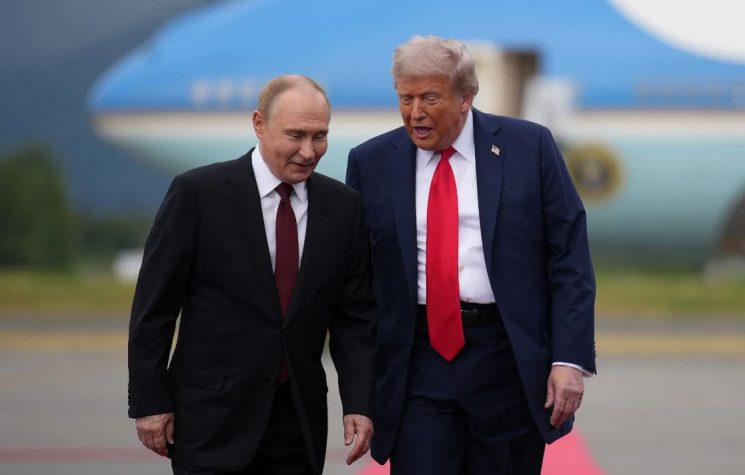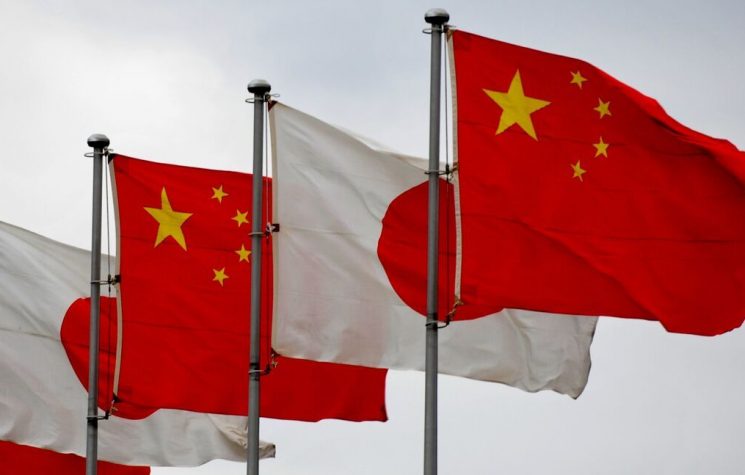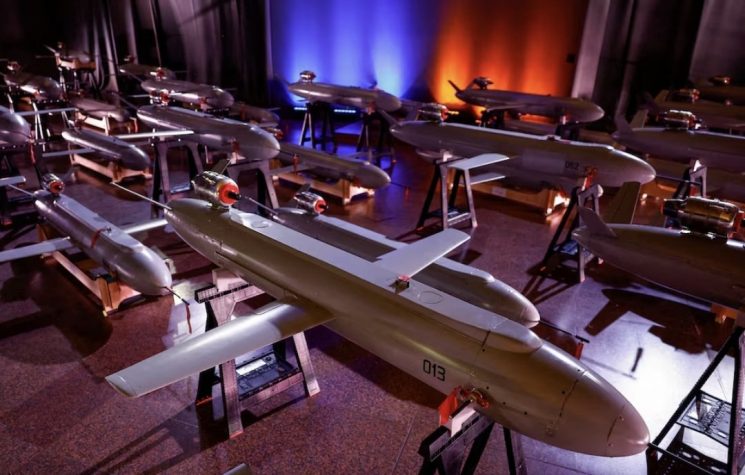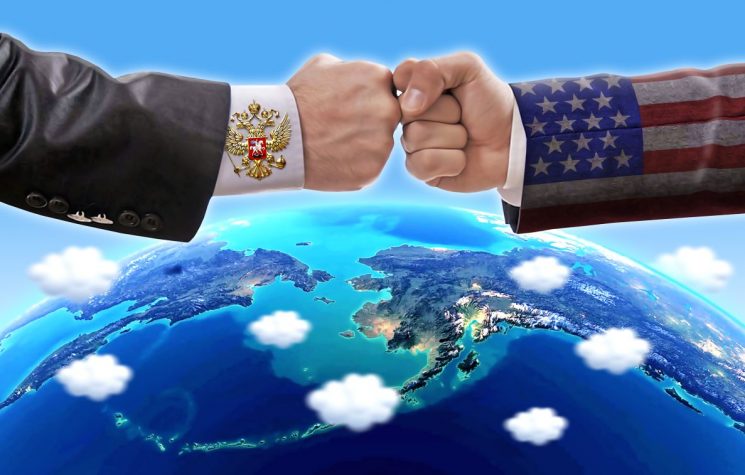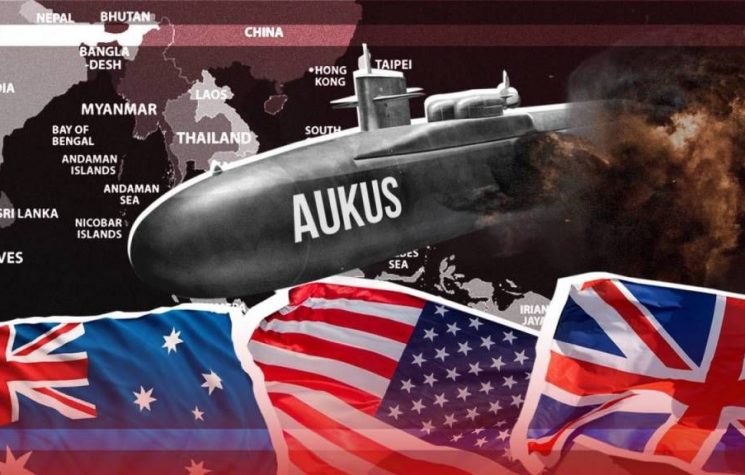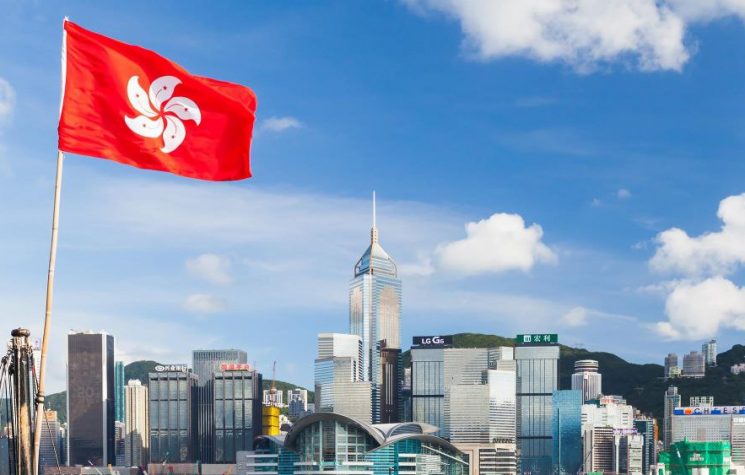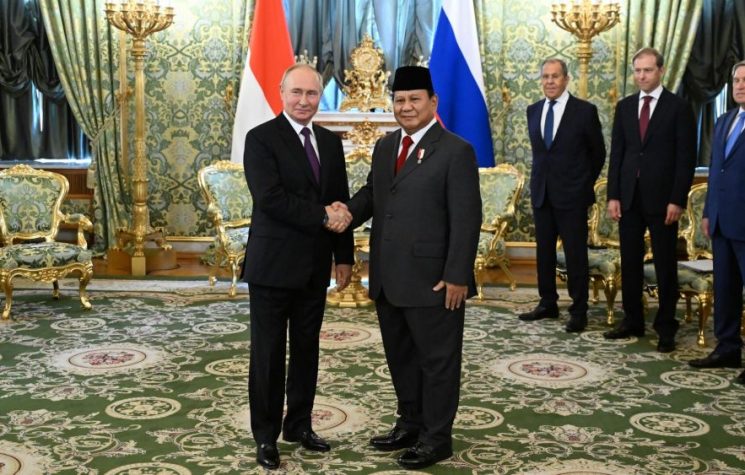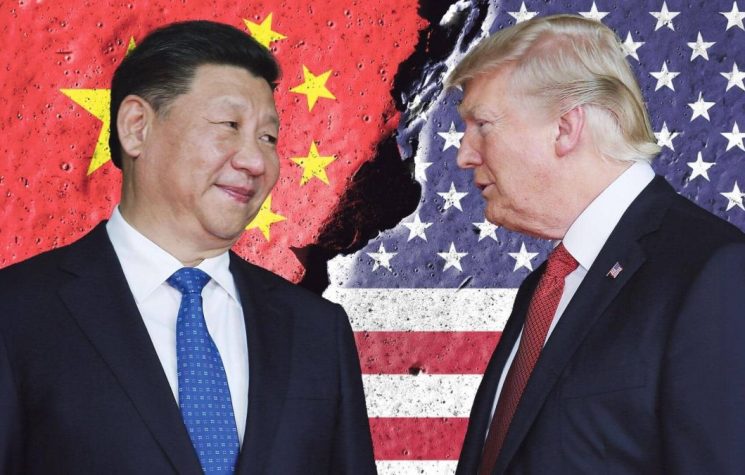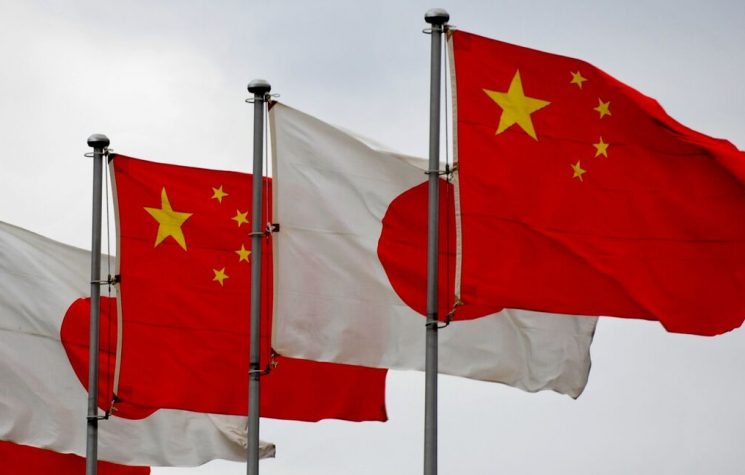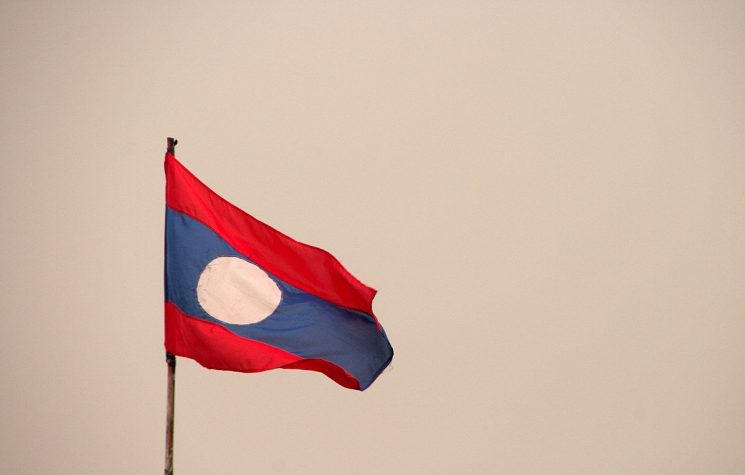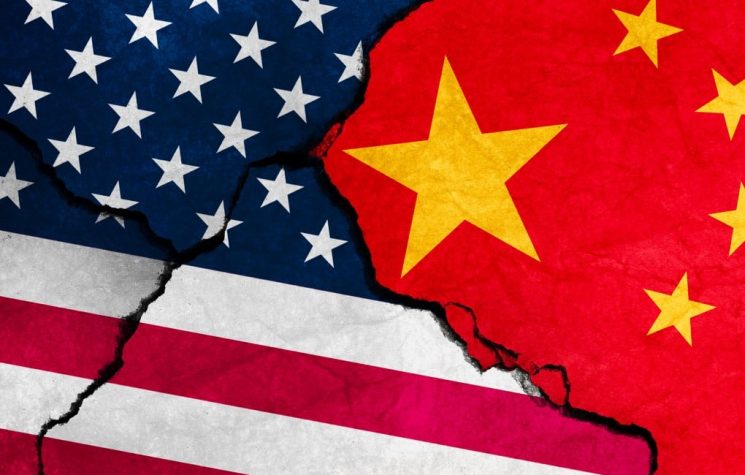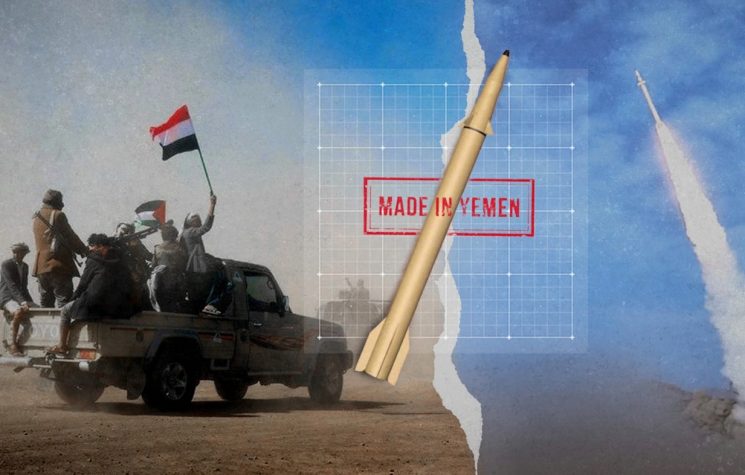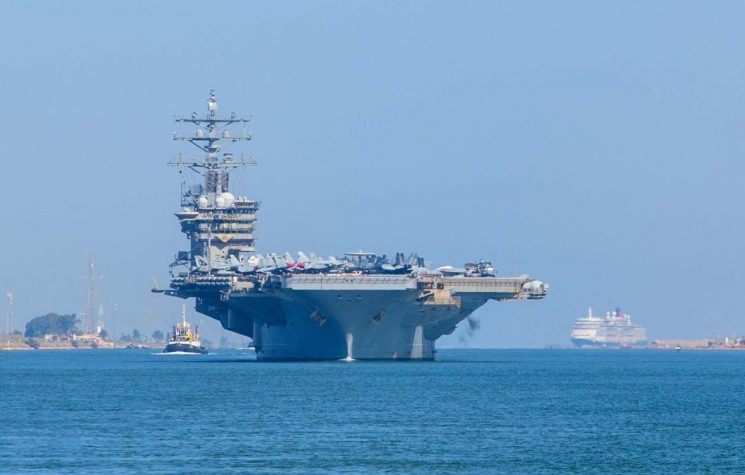As of this month, the United States is deploying three of its aircraft carriers simultaneously to patrol the Pacific in what is designed to be a clear threat to China. Each carrier strike group comprises destroyers, aircraft and submarines. The U.S. has 11 aircraft carriers in total.
Rear Admiral Stephen Koehler, director of operations at Indo-Pacific Command, is quoted as saying of the unusual deployment. “Carriers and carrier strike groups writ large are phenomenal symbols of American naval power. I really am pretty fired up that we’ve got three of them at the moment.”
Bonnie Glaser, director of the China Power Project at the Center for Strategic and International Studies, admitted that the operations were provocative, albeit suggesting that the reality was somehow a propaganda coup for Beijing. She said: “The Chinese will definitely portray this as an example of U.S. provocations, and as evidence that the U.S. is a source of instability in the region.”
Forget about Chinese “portrayal”. It seems plainly factual that Washington is ramping up belligerence and instability in the Pacific.
The unprecedented muscle-flexing by the U.S. comes at a time when political relations between Washington and Beijing have descended into a new Cold War. President Donald Trump is whipping up his support base with renewed racist slurs against China over the coronavirus pandemic. At recent rallies in Oklahoma and Arizona, the president has referred to the “Kung Flu” and a “plague” sent from China.
Meanwhile, Trump’s Secretary of State Mike Pompeo told an online conference last week that the Beijing government is a “rogue actor” threatening supposed democratic Western states. Pompeo urged European allies to stand with the U.S. against China’s “tyranny”.
For its part, Beijing slammed Pompeo for spreading “political virus” with a “deep-seated Cold War mentality”.
The anti-China hysteria in Washington has reached fever pitch. Part of that stems from the Trump administration’s necessity to scapegoat China for its own disastrous mismanagement of the coronavirus disease which has seen the death toll in the U.S. surpass 120,000, with no sign of easing up. That’s nearly a quarter of the world’s death toll, a grim tally which is likely to keep on mounting in coming weeks as Trump desperately pushes for reopening of business-as-usual.
Then there is the longer, underlying trend of strategic confrontation. It was under President Barack Obama in 2011 that the U.S. embarked on a “Pivot to Asia”, heralding the explicit focus on China as a perceived global target for American power.
The Trump administration has merely followed through on that strategic agenda of confrontation with China. Which tends to demonstrate the structural nature of U.S. political power, whereby presidents may come and go, but imperialist policy is set on a constant course of deep state planning.
Trump’s fiery personality has certainly added fuel to the anti-China drive with his hobby-horse on the trade war, accusing China of “raping” American industries and all sorts of other alleged skulduggery.
That was before the coronavirus pandemic brutally exposed the frailty of U.S. economic power and Trump’s so-called “Make America Great Again” delusion. Thus, a scapegoat had to be found for the “outrage” of exposing American hubris as an empty shell. Step up China, a ready-made propaganda target for U.S. imperialism.
A study this week by the China-based National Institute of South China Sea Studies claims that the Trump administration is deploying U.S. military power on an ever-increasing greater scale. During the two Obama administrations, the U.S. Navy carried out four “freedom of navigation” operations in the contested South China Sea. Under Trump, the number of such operations has reached 22, according to the institute.
What’s more disturbing, however, is the lines of communication between American and Chinese military commanders have apparently been drastically reduced since Trump took office in 2017.
That means with the massive buildup of U.S. military force around China in the South China Sea and Strait of Taiwan there is a serious risk of some incident or perceived trespass spiraling out of control. (We have yet to see a comparable buildup of Chinese navy off California or Virginia.) American and Chinese warships have already ran into dangerous near misses. But what makes the present situation all the more perilous is the vacuum in military-to-military communications plus the toxic tensions that the Trump administration has deliberately wound up with Beijing. Trust is at rock-bottom despite Trump’s past chummy words for Chinese President Xi Jinping.
Washington is not only insinuating that China is legally liable for “decimating the global economy”. The Trump administration is demanding that the European Union curtail its economic relations with China. All sorts of slander is thrown at Beijing, from posing as a national security risk with its telecoms technology, to undermining European national sovereignty because China is investing in infrastructure projects across the EU.
Given that the EU is China’s biggest trading partner, such demands by Washington are a direct assault on Beijing’s vital global interests.
Sailing a U.S. armada towards China is not some isolated maneuver – provocative that that is. It is evidently a configuration of hostility, ranging from political to economic to military. It’s classic imperialist power play by a decaying empire whose zero-sum mentality is a precursor for war.








